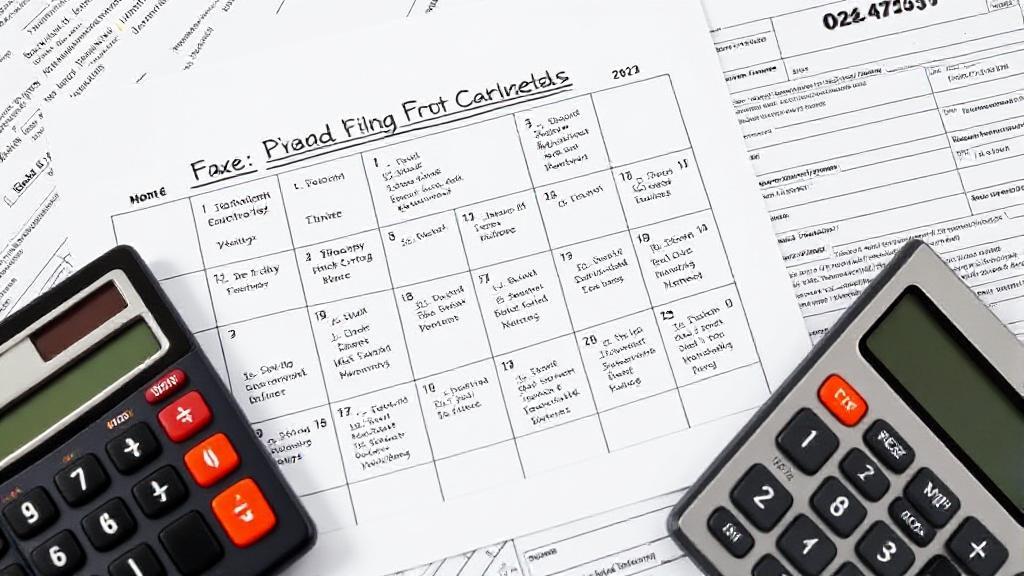Key Tax Filing Dates and Deadlines
January Dates
- January 16, 2024: Fourth quarter estimated tax payments for 2023 due
- January 31, 2024: Employers must send W-2 forms to employees
- January 31, 2024: Deadline for sending 1099 forms to independent contractors
- Late January: IRS typically begins accepting tax returns
Standard Filing Deadline
April 15 is the traditional deadline for filing federal income tax returns. If this date falls on a weekend or holiday, the deadline shifts to the next business day. For 2024, the deadline is April 15.
Extension Deadline
October 15 is the deadline for those who filed an extension. While an extension gives you an additional six months to file, it does not extend the time to pay any taxes owed. Interest and penalties may accrue on unpaid taxes after the April deadline.
Quarterly Estimated Tax Payments
Self-employed individuals and those with significant non-wage income must make quarterly estimated tax payments on:
- April 15 (for January 1 - March 31)
- June 15 (for April 1 - May 31)
- September 15 (for June 1 - August 31)
- January 15 of the following year (for September 1 - December 31)
State Tax Deadlines
Most states align with federal deadlines, but there are exceptions:
| State | Typical Due Date |
|---|---|
| Virginia | May 1 |
| Delaware | April 30 |
| Louisiana | May 15 |
Note: Always verify current deadlines with your state's tax authority, as dates can change year to year.
Special Circumstances
Military Personnel
Active duty military members serving in combat zones receive automatic extensions:
- 180 days after leaving the combat zone
- Additional time for qualifying hospitalization
- Applies to spouses as well
Natural Disaster Areas
Taxpayers in federally declared disaster areas may receive additional time to file. Check the IRS disaster relief page for updates.
Late Filing Penalties
Failing to file or pay on time can result in significant penalties:
- Failure-to-file penalty: 5% of unpaid taxes per month
- Failure-to-pay penalty: 0.5% of unpaid taxes per month
- Interest charges on unpaid taxes
Tips for a Smooth Tax Season
- Organize Your Documents: Keep all tax documents, such as W-2s, 1099s, and receipts, in one place
- Use Tax Software: Consider using tax software or hiring a professional
- Stay Informed: Keep up with tax law changes that may affect your filing
- File Early: Benefits include faster refunds, more time to plan for taxes owed, and reduced risk of tax identity theft
For more detailed information, visit the IRS website, which provides comprehensive resources and guidance for taxpayers. You can also check the Federation of Tax Administrators website for state-specific information.
